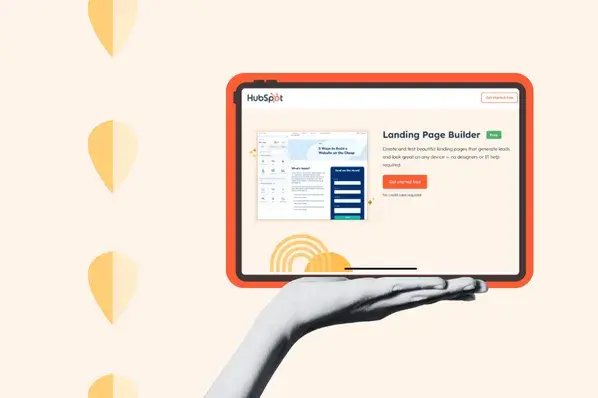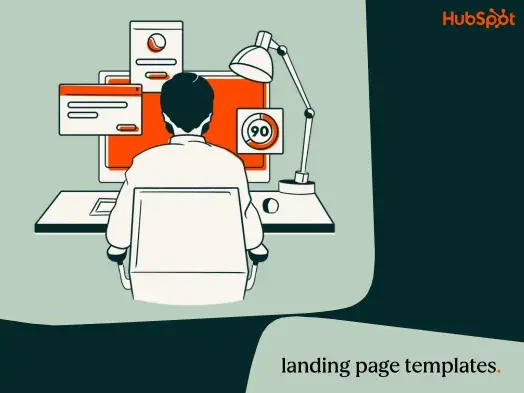What Is a Landing Page?
Let's answer that by first establishing what a landing page is not. That's important because there are a lot of different definitions floating around out there. (The other definitions aren't better or worse -- they're just different.) The biggest difference I often see is the term "landing page" being used to refer to any ol' page on a website. You know, they're all pages on which one might "land."
However many marketers, ourselves included, prefer to differentiate landing pages a little bit more than that. Instead, we would call any page on the web on which one might land a "web page," whereas a "landing page" is any page on the web on which one might land that 1) has a form and 2) exists solely to capture a visitor's information through that form.
In other words, all landing pages are web pages, but not all web pages are landing pages.
For instance, these are all examples of web pages that are not landing pages:

Not all of those pages have forms, and none of them exist solely to capture a visitor's information using those forms.
These, however, are all examples of web pages that are landing pages:

Not only do all of these pages have forms on them, but also the pages exist purely to capture a visitor's information via that form. Notice how these landing pages have no distractions on them -- they feature some explanatory copy and a form so they are completely optimized to capture a visitor's information.
What's the Form For?
A form on a landing page is an opportunity for someone to convert -- what marketers often refer to as a conversion event. That conversion event could be filling out a form for an ebook, filling out their email address so they can subscribe to your blog, or filling out transactional information to purchase a product on your site. The landing page form, whether one field or multiple fields, is the time for a visitor to give you certain information about themselves so that you can give them something back in return.
What If There's a Form on, Say, My Homepage?
It doesn't make it a landing page. (To be clear, it's not a bad thing, necessarily, to have a form on your homepage. But it's still not a landing page.)
Why?
Because if you go back to the definition from earlier in this post, a landing page has to meet two criteria to be dubbed as such:
- It must have a form. (Check!)
- It must exist solely for the purpose of capturing a visitor's information through that form. (Nope. Sorry. Try again next time.)
Your homepage, while it may have a form, exists to perform many other functions other than capturing visitor information via a form. You might want to introduce your founder, show examples of your content, talk about pricing and services, entertain people with a cool slideshow, or play a video on your homepage. These are all great things to do, but they would distract from getting a visitor to fill out a form.
And that's why landing pages are so valuable.
If you need to deliver a certain number of leads a month to Sales, and you can have certain pages (landing pages!) on your website that exist solely to do just that, you're much more likely to be successful. You can point your calls-to-action to those uncluttered, conversion optimized landing pages, instead of a more cluttered web page that might exist to serve multiple purposes.
I hope that explanation helped clear up a very common, but very nuanced, question!
If you're interested in learning more about landing pages and how you can use it for your business, check out our free ebook How to Use Landing Pages for Business. And if there are any other FAQs you'd love an answer to, leave your question in the comments.
Image credit: Nostaw21









![Why You Need to Create More Landing Pages [Data + Tips]](https://53.fs1.hubspotusercontent-na1.net/hubfs/53/create%20more%20landing%20pages.png)
.png)

